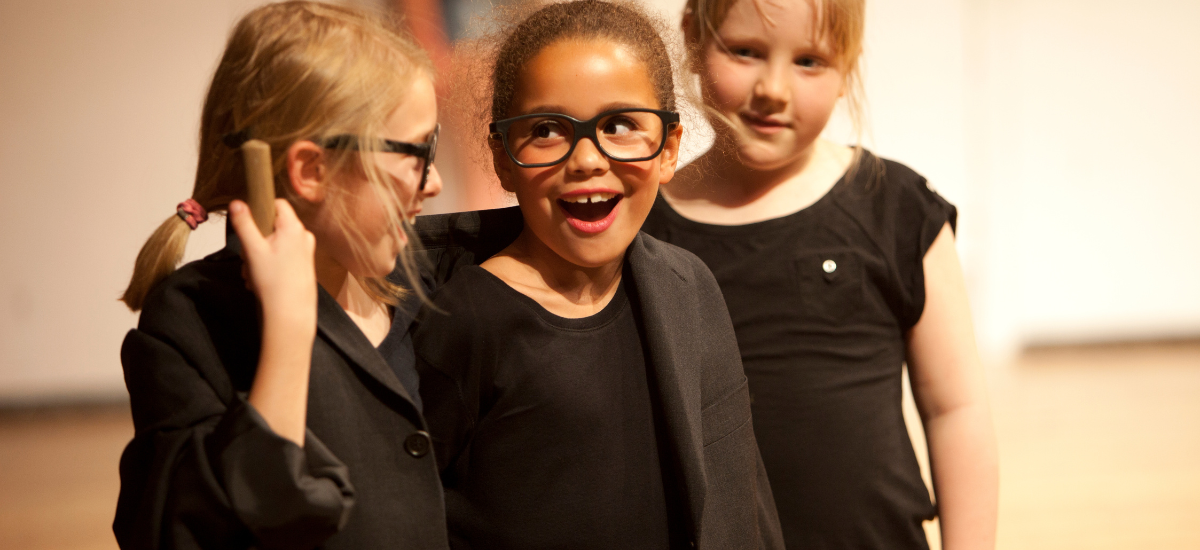
Drama, mental health and well-being

BY: Sue Clarke: Subject Expert - Drama
20 February 2023
Mental health and well-being are crucial aspects of our overall health, and this is particularly so for young people who are facing increased stress levels, high expectations, and numerous challenges (climate change, cost of living crises etc). It has also been shown that '80% of young people with mental health needs agree that the Covid-19 pandemic has made their mental health worse' (source: Young Minds) and well-being is rightly a priority for many schools, organisations and professionals working with young people.
Engaging in the arts has long been shown to have many benefits for one’s sense of well-being – indeed Arts Council England’s review has successfully shown that: 'from a 37% reduction in GP visits to a 68% improvement in mental health symptoms, the research says art on prescription works'.
Taking part in drama activities can be beneficial to mental health and well-being in numerous ways:
- Self-expression – allows young people to express themselves and explore different emotions and perspectives through role-playing and improvisation.
- Communication and social skills – helps in developing better communication and social skills by encouraging young people to interact with, and collaborate with, others in the making or performing of theatre.
- Confidence-building – the drama group can provide a safe space to take risks and try new things. Getting up and speaking in front of others in a fun and supportive environment and performing in a productions can all contribute to developing confidence in young people.
- Stress-relief – acting as a form of catharsis, the channelling of pent-up emotions through the acting out of roles and scenarios.
- Sense of community - joining a drama group or class can provide a sense of belonging and connection. Indeed, anyone who has been in a part of a production (backstage or onstage) knows the sense of 'family' this can create.
- Developing creativity – encourages young people to express themselves creatively through imaginative activities, helping to foster skills in problem solving.
- Empathy - through role-playing, young people can explore different perspectives and emotions, which can help them develop empathy and a greater understanding for others and themselves.
Furthermore there can be specific well-being benefits to working towards graded drama qualifications such as those offered by Trinity:
- Develops resilience - preparing for and performing in drama exams can be challenging, but it can also help young people develop resilience, determination, and a growth mindset.
- Getting external feedback from an examiner can identify strengths and areas that can be improved, thus providing the learner with concrete steps to progression - knowing how to develop is often the key to success.
- A sense of accomplishment - completing an exam can provide a sense of achievement and boost one's self-esteem.
- Structured learning - exam preparation helps to focus learning, which can lead to a deeper understanding of the subject and increased confidence. Progression through the grades provides a very clear framework for learning – the learner can build skills in a coherent and meaningful way.
We at Trinity aim to put the learner at the centre of our drama qualifications - we want to empower and inspire, build self-confidence and a sense of well-being in young people preparing for our exams. The freedom to choose is fundamental to that philosophy and is something that our teachers value.
Our range of performance-based qualifications are designed to suit all needs: maybe a candidate has a love of the spoken word and the power that poetry has to express big ideas: maybe they enjoy devising, creating original work that allows their voice to be heard; maybe they have a talent that can’t be assessed elsewhere – such as clowning, puppetry, choreography, film-making; or maybe they have a passion for the way in which musical theatre uses a synthesis of performance skills to explore narratives, characters and ideas.
In addition to a wide range of subjects, all our specifications allow learners to freely select the material they wish perform for assessment. In this way they are free to choose works that inspire and truly speak to them. This choice means the learner has ownership over their exam, a sense of autonomy leading to a greater sense of empowerment and engagement.
But whether a young person is interested in sports, reading, watching films, spending time with friends or engaging in the performing arts, what is important is that they are encouraged to pursue interests that make their hearts sing and are supported to prioritise their mental health & well-being by those around them.
Sources of support:




Comments & Replies